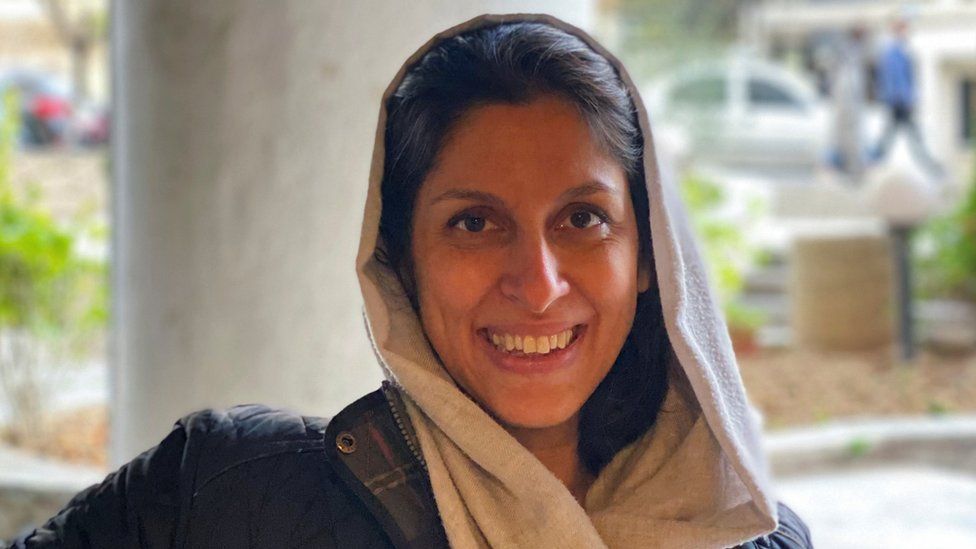Last week was supposed to be the end of the battle between the British-Iranian dual citizen Nazanin Zaghari-Ratcliffe, and the Iranian justice administration. After being arrested on the 3rd of April 2016 and accused of unclear charges concerning a scheme to undermine the Iranian government, Zaghari-Ratcliffe was found guilty and sentenced to five years’ imprisonment.
In 2016, Zaghari-Ratcliffe travelled to Iran with her daughter to visit relatives. She intended to return to the UK on the 3rd of April but as she was about to board her plane, she found herself being arrested without any explanation.
Zaghari-Ratcliffe faced an unfair trial as the evidence supporting her crime was held secret. Detained in prison until March 2020, Nazanin Zaghari-Ratcliffe was able to leave and continue her sentence as house arrest due to a widespread coronavirus outbreak in Iranian prisons. Zaghari-Ratcliffe’s sentence was due to end on the 7th of March 2021, but immediately after the removal of her ankle tag she faced additional charges of “propaganda activities against the regime”. A few days ago, she was found guilty, and banned from leaving Iran for another year.
Nazanin Zaghari-Ratcliffe has denied guilt to all of her charges and international human rights organisations suspect that she is being used as a bargaining chip. In 2016, Amnesty International stated that they believed her arrest may have been related to the imprisonment of Iranian technology news websites employees. In 2014, technology news websites employees received sentences of up to 11 years for taking part in courses that were meant to provide training for Iranian citizen journalists. However, the Iranian government accused this project, run by BBC, of comprising plans that were supposed to connect anti-revolutionary Iranians abroad. Although Zaghari-Ratcliffe did work for the BBC World Service Trust between 2009 and 2010, her position was described as purely administrative.
Zaghari-Ratcliffe may also have been imprisoned as a result of the debt Britain owes Iran for tanks that were purchased in the 1970s but were never delivered. Although unofficially, the Iranian government is thought to have admitted that there is a linkage between these two cases.
In 2008 an international court agreed that the money had to be paid back. However, the Uk placed the money in a frozen account where it remains to this day. the United Kingdom and Iran are engaged in an ongoing debate about the interest owed and who should receive the money. There is concern that branches of the Iranian government may use the money to fund activities associated with terrorist groups therefore, by paying back the money, sanctions would be broken. Additionally, the UK government claims that they do not intend to reward Iran by showing that taking people hostage could result in achieving the desired effect.
On his Twitter account, Prime Minister Boris Johnson said: “Iran’s decision to sentence Nazanin Zaghari-Ratcliffe to another year in prison is cruel, inhumane and wholly unjustified. She must be allowed to return to her family in the UK and we will continue to do all we can to get her home.”
Additionally, the Prime Minister claimed that: “We will be working very hard to secure Nazanin Zaghari-Ratcliffe’s release from Iran, her ability to return to her family, here in the UK. […] The government will not stop, we will re-double our efforts and we are working with our American friends on this issue as well.”
MP Tulip Siddiq believes that there is a correlation between the unpaid debt and imprisonment of Mrs Zaghari-Ratcliffe. Siddiq suggests that the UK should pay the money back because otherwise there is no room for negotiation. Although, it is not guaranteed that the repayment would result in the release of Zaghari-Ratcliffe, Siddiq believes the UK’s position in the negotiations would be much stronger after the reimbursement. Perhaps, by undertaking such actions, the UK government could help negotiate a release for other dual-citizens held in Iranian’s prisons.
Basia Jankowiak
Featured Image Source: The BBC

